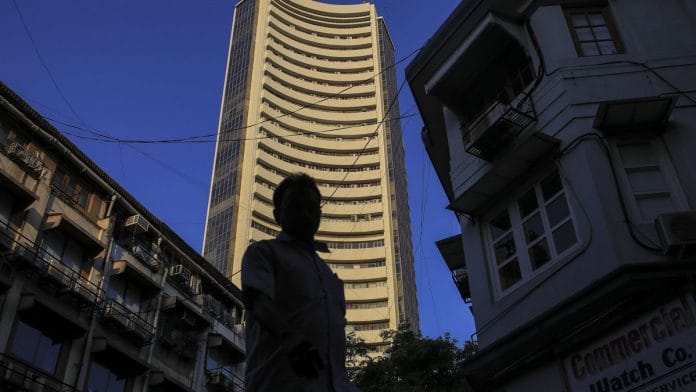Mumbai: Global funds have turned net sellers of India’s sovereign bonds for the first time in four months, as expectations grow of a wider budget deficit.
Foreign investors sold Rs 11,000 crore ($1.5 billion) of government bonds so far in January, set for its first sell-off in four months, according to data from Clearing Corp. of India, compiled by Bloomberg. An increasing number of analysts predict that Prime Minister Narendra Modi will again announce a record borrowing plan at the 1 February budget.
The sell-off may be a sign that India’s weakening economy, as well as limits on more policy rate cuts, signal the start of prolonged pain for the nation’s bond markets. The benchmark 10-year yield has gained for three consecutive weeks as Modi contends with an inflation surge and slowing growth.
“The spike in inflation and concerns around the upcoming budget might be the main reasons for offshore selling,” said Rohit Garg, a Singapore-based emerging markets strategist at Bank of America Merrill Lynch. While the current account is under control due to slowing imports, it also suggests economic growth will continue to struggle, he said.
Morgan Stanley expects the government to announce a fiscal deficit at 3.7% of gross domestic product for the fiscal year ending March, higher than the 3.3% expected. Aditya Birla Sun Life AMC Ltd. also sees a shortfall of about 3.8%.
Modi’s government had announced a record borrowing plan of 7.1 trillion rupees for the current fiscal year as it attempts to revive an economy expanding at its slowest pace since 2009. Bonds though had rallied in 2019 after the Reserve Bank of India cut rates five times, and introduced a U.S. Federal Reserve-style Operation Twist in December to lower long-term borrowing costs.
Monetary Constraints
A surge in December’s inflation to 7.35%, the highest since 2014, though has changed sentiment among bond traders. Analysts now expect the central bank, which next meets on Feb. 6, to be on a prolonged pause in its policy.
The benchmark 10-year yields have risen 15 basis points after dropping to a one-month low on Jan. 3. It closed down 1 basis point at 6.64% on Tuesday.
“RBI’s easing expectations have shifted materially with the spike in inflation – so you have less support coming from that front,” said Dushyant Padmanabhan, strategist at Nomura Holdings Inc. in Singapore. “Until now you had accommodative policy but lower inflation – so real yields were quite attractive.” – Bloomberg
Also read: India needs a lot more policy stability to attract investors: Arvind Panagariya






